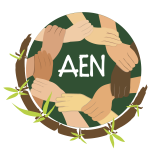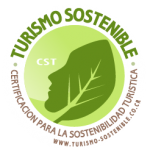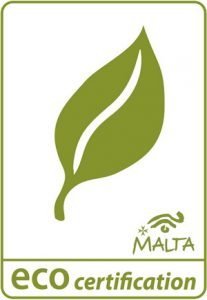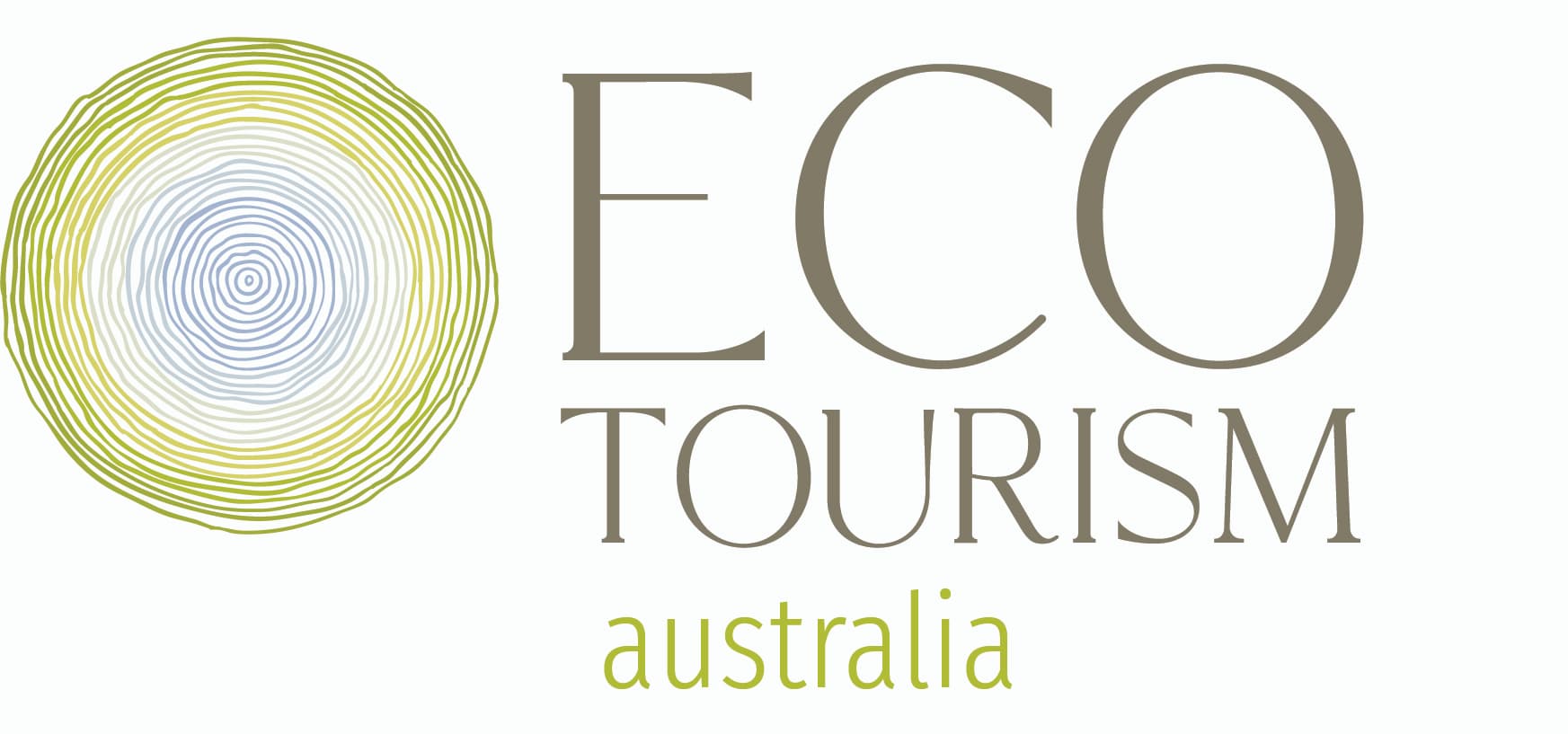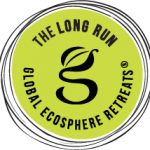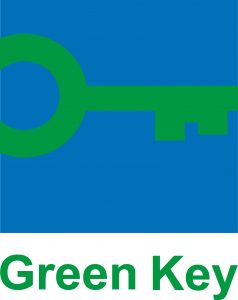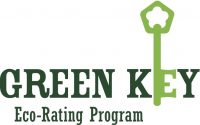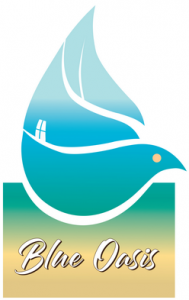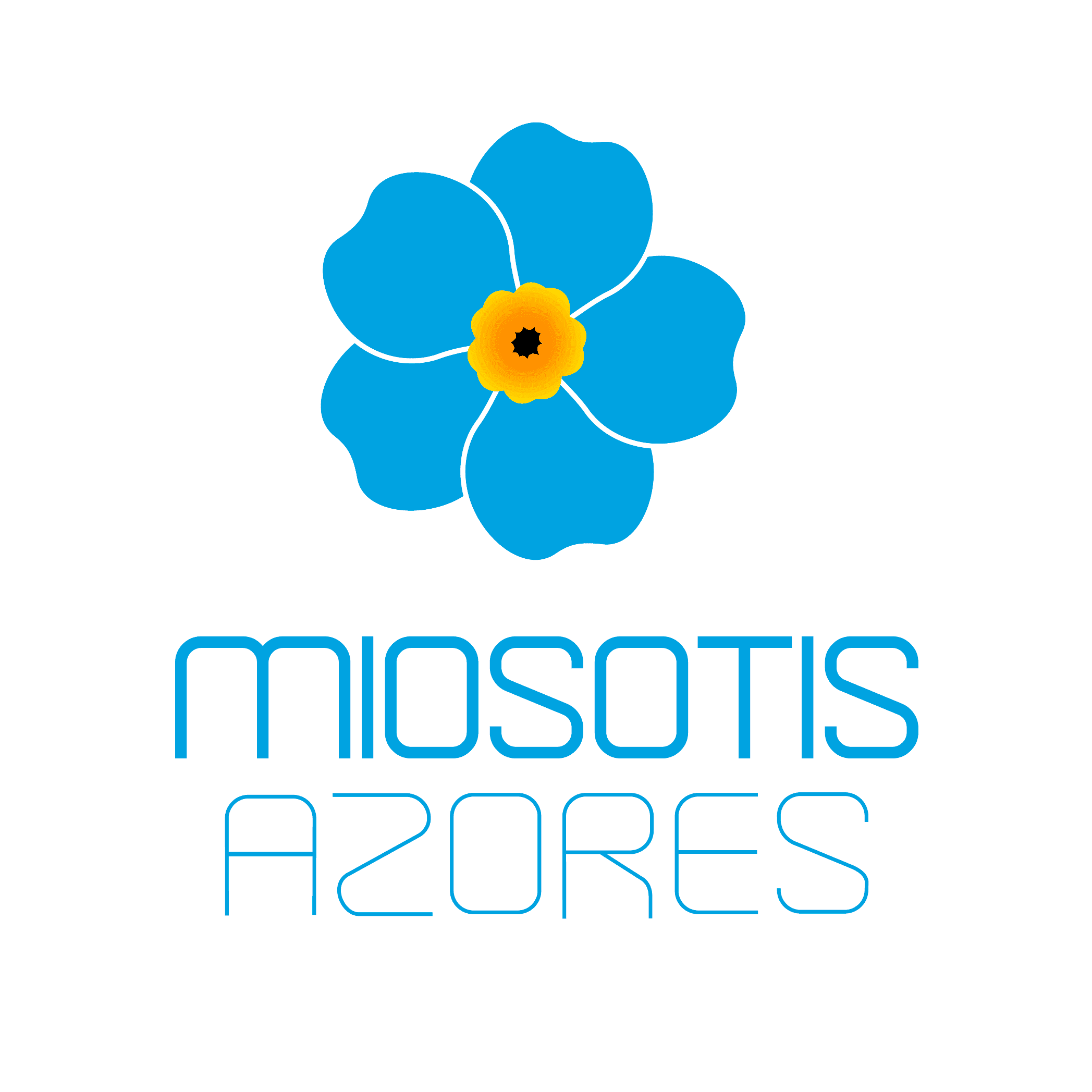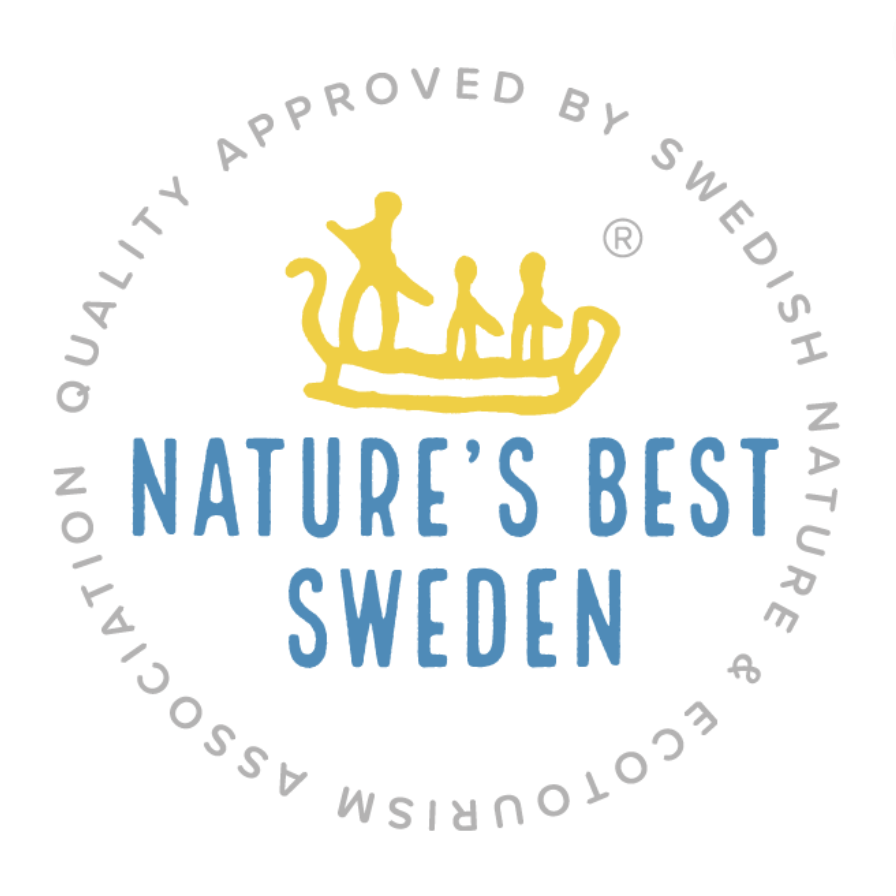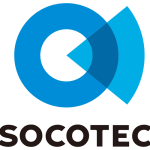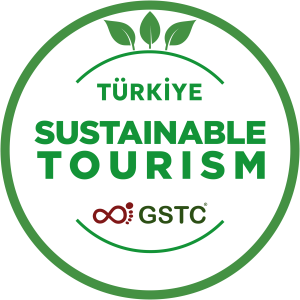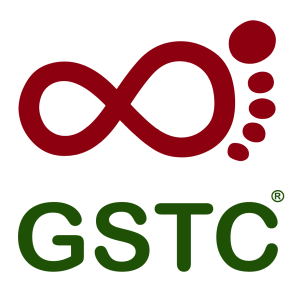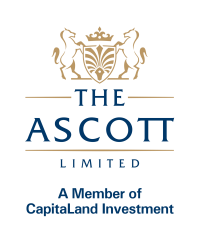Estándares y Sistemas Reconocidos por GSTC para Hoteles
Los Estándares Reconocidos por GSTC son estándares de turismo sostenible que se adhieren y son equivalentes a los Criterios GSTC. Esto significa que los Criterios GSTC están incluidos dentro del conjunto de estándares propiedad de un Organismo de Certificación o una organización turística local, nacional o especializada.
Reconocido por GSTC significa que un estándar de turismo sostenible ha sido revisado por expertos técnicos del GSTC y el Panel de Acreditación del GSTC, y se considera equivalente a los Criterios GSTC para turismo sostenible y es administrado por un dueño del estándar que cumple con los requisitos de los Criterios GSTC. Esto significa que el GSTC ha verificado que el estándar se alinea con los Criterios del GSTC y que cualquier cláusula adicional no contradice los requisitos de los Criterios GSTC. El Reconocimiento GSTC no garantiza que el proceso de certificación sea confiable, solo que el conjunto de estándares utilizados para certificar incluye los elementos mínimos para garantizar la sostenibilidad. Un organismo certificador que utiliza un estándar Reconocido por GSTC puede solicitar la Acreditación GSTC que se relaciona con la calidad y neutralidad de su proceso de certificación.
Los siguientes estándares han sido Reconocidos como alineados con los Criterios GSTC para Hoteles y Alojamientos
(visita aquí los Estándares Reconocidos por GSTC para Operadores Turísticos)
(visita aquí los Estándares Reconocidos por GSTC para Destinos)
NOTA:
- Esta es una lista de estándares. GSTC NO ha analizado la calidad del proceso de certificación de estos estándares, excepto aquellos que han sido acreditados por el GSTC: Organismos de Certificación Acreditados por GSTC para Alojamientos y Operadores Turísticos.
- GSTC NO certifica directamente. Los Criterios GSTC aparecen en esta lista para precisar que los Organismos de Certificación que obtienen la acreditación tienen la opción de certificar utilizando su estándar Reconocido por el GSTC o utilizando los Criterios GSTC.
Actively Green Standard
The Actively Green standard is the core component used in the Actively Green Sustainable Business Training and Certification Program. It was launched as an innovative legacy initiative of the 2015 FIS Alpine World Ski Championships in Vail and Beaver Creek, Colorado, USA through a partnership with Sustainable Travel International and Town of Vail. Another component of the Program is the Mountain IDEAL destination standard for mountain resort communities.
Adventure Green Alaska Standards
Adventure Green Alaska began in 2007 as a statewide effort to grow sustainable tourism in Alaska and promote model businesses practicing economic, environmental and social sustainability. It is Alaska’s only sustainable tourism certification program and was created entirely by volunteers. The program came under the Alaska Travel Industry Association in 2015, whose goal was to grow the program in Alaska and increase the programs credibility through the development of a new level of standards, AGA Summit, that meet the GSTC Criteria for tour operators and accommodations.
Asian Ecotourism Standard for Accommodations (AESA)
The stated scope of AESA is ecolodges and ecoresorts or nature-based lodges in the Asia Pacific. The standard is designed to help identify the authentic ecotourism lodging industry among others who claim they are ‘eco’ and guide Asia Pacific to realize SDGs with evidence while raising happiness index for both visitors and visited. Asian Ecotourism Network (AEN) is a registered not-for-profit trade association based in Bangkok Thailand with 5 country satellite offices in India, Indonesia, Japan, Malaysia, and Philippines. The board comprises 17 countries in Asia and Pacific that makes AEN a unique network. It is a sub-global network of Global Ecotourism Network.
Austrian Ecolabel for Tourism
The Austrian Ecolabel for Tourism and Leisure-time Industry was the first national eco-label for tourism worldwide. It was implemented in 1996 by the Austrian Ministry for Sustainability and Tourism. Almost all types of tourism businesses can be awarded for their commitment in the fields of environmentally friendly management and social responsibility through independent third-party audits on site. The Ecolabel for tourist accommodation covers businesses of any size fulfilling an advanced set of criteria developed and regularly updated in a comprehensive stakeholder process involving tourism as well as environmental experts.
Biosphere Standard for Hotels
Biosphere Tourism is a standard by the Responsible Tourism Institute (RTI), an international organization that has been promoting for more than 20 years responsible tourism at an international level. Through the Biosphere brand, the RTI promotes Sustainable Development by measuring the contribution of tourism to the 17 Sustainable Development Goals (SDG) of the United Nations and the indications of the Paris Agreement against Climate Change.
Cabo Verde Sustainability Standard for Tourist Accommodations
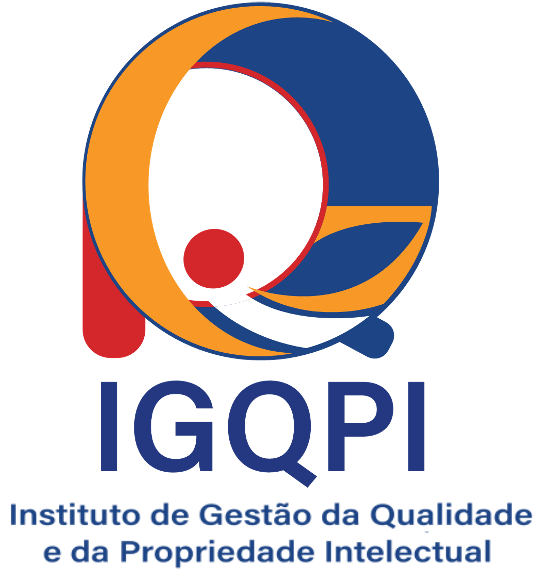
Chile Sello S (SERNATUR)
The Chilean national system for distinction of sustainable tourism recognize the efforts of tourist accommodation that have progressed in any field of sustainability, differentiating its members over their competitors while ensuring visitors each organization’s commitment to sustainability.
Costa Rica Certification for Sustainable Tourism (CST)
The Certification for Sustainable Tourism (CST), established by the Costa Rican Tourism Institute in 1997, was created to provide guidelines for hotel properties and service providers to build their business model based on the best sustainable tourism practices – the management and impact of the natural, cultural and social resources of the country. The criteria and indicators that are valued to award certification include: business management; social, cultural and economic management; environmental management; and the management of specific indicators according to category. More information on the CST program.
EarthCheck Evaluate and Company Standard
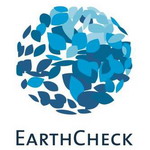
Eco-Certification Malta Standard
The ECO Certification is Malta’s national scheme for ensuring the environmental, socioeconomic, and cultural sustainability of hotels and farmhouses on the Maltese Islands. The scheme was launched by the Malta Tourism Authority in 2002. The criteria were updated in 2008, 2012 and again in 2019. The new criteria follow a shift from an environmental scheme to a sustainable scheme covering environmental, social, cultural, economic, quality and health & safety. The main areas covered by the current criteria are: Sustainability management systems; Waste management; Purchasing; Control of chemicals; Energy; Water; Air quality; Noise; Building and green areas; Local culture & national surroundings; and Communication with customers.
Ecostars
Ecostars is a hotel-specific sustainability program that awards eco-stars based on a hotel’s environmental impact per stay. The program’s “21st-century evaluation methodology” combines digitalization and objective ESG evaluation by leveraging on cutting-edge technology and statistical analysis to assess quantitative dimensions, supplemented by adherence to Ecostars standards.
Ecotourism Australia’s ECO Certification Standard
Ecotourism Australia (EA) is a non-government, not-for-profit organisation, established in 1991, that promotes and supports the eco and sustainable tourism industry in Australia through building capacity and actively promoting sustainable tourism operations and systems. Our key program – ECO Certification – was the world’s first national ecotourism certification program. We are recognised as a credible, national peak body for sustainable and nature-based tourism.
Ecotourism Kenya Standard for Tourism Accommodation Facilities
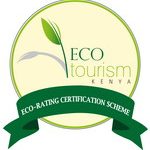
European Ecotourism Labeling Standard (EETLS)
EETLS – the European Ecotourism Labelling Standard – is a baseline quality standard developed along the lines of the GSTC Criteria, for European Ecotourism. The EETLS is the result of a lengthy development and consultation process that documented international best practice leading to a set of criteria and indicators that are suitable for ensuring quality of ecotourism services. The EETLS aims to provide a Europe-wide dimension of ecotourism quality certification, offering the possibility for an EETLS-compliance sign integrated in the existing labels. The first version of the EETLS was developed under the ECO-DESTINET project, co-funded by the LLP-Leonardo programme of the European Commission, and has been revised by the ECOLNET team. Among the project partners, PRISMA and the affiliated NGO Hellenic Ecotourism Society use standards based on EETLS (EETLS-GR 2nd) which is the current GSTC-Recognized Standard.
Global Ecosphere Retreats (GER)
The Long Run’s Global Ecosphere Retreats® (GER) standard covers all 4C (conservation, community, culture and commerce) aspects of sustainability in tourism with equal weight. The standard is a vehicle to support nature-based tourism businesses’ in their journey of continuous improvement. Likewise, it is not only about businesses merely mitigating their negative environmental impacts but about positively impacting the well-being of the planet and the people.
Green Hospitality
GreenHospitality.ie started in 2006 in partnership with the Irish EPA and has grown to be the pre-eminent Irish based 3rd party environmental and sustainability certification and recognition programme across the country. It supports all types and sizes of tourism businesses and operates 3 distinct programmes – Green Hospitality Standard is GSTC recognized and it is used for the Platinum Award for all businesses, our Environmental Certification Award (Eco-label, Silver, Gold) for larger businesses and GREENMark recognition for small businesses. The programmes and awards are based on and support national and international standards including the GSTC Criteria, UN SDG’s, EU Eco-Label, UNWTO Global Tourism Plastics Initiative and provide world-class Benchmarking, KPI’s and Carbon Footprint calculations, utilising the Sustainable Hospitality Alliance measurement methodologies. Its Hotel Energy & Carbon Footprint Benchmarking is unique as it moves beyond basic kWh analysis and enables hotels with any type of heating/cooling to be comparable. Green Hospitality provides training and consulting focusing on energy, carbon, waste, and water minimisation.
Green Globe Standard
The Green Globe Standard has been developed and improved over the past 25 years and includes 44 core criteria supported by over 380 compliance indicators. The applicable indicators vary by type of certification, geographical area as well as local factors. The entire Green Globe Standard is reviewed and updated twice per calendar year. Green Globe is active in harmonizing with other established sustainability certification programs around the world. The process of harmonization contributes to maintaining core criteria and at the same time addresses regional issues through the adoption of locally developed standards. The Green Globe Standard is based on the following international standards and agreements: GSTC Criteria; Baseline Criteria of the Sustainable Tourism Certification Network of the Americas; Agenda 21 and principles for Sustainable Development endorsed by 182 Governments at the United Nations Rio de Janeiro Earth Summit in 1992; ISO 9001 / 14001 / 19011.
Green Growth 2050 Standard
Green Growth 2050 has been developed to meet the needs of tourism and travel businesses seeking today’s solutions to the issues driving social, cultural and environmental change. The Green Growth 2050 Global Standard and Sustainability Reporting Framework is an international online solution designed to allow travel and tourism organisations to assess the overall sustainability and CSR performance of their existing individual properties and portfolios.
Green Key Criteria
The Green Key award is a leading standard for excellence in the field of environmental responsibility and sustainable operation within the tourism industry. This eco-label represents a commitment by businesses that their premises adhere to the strict criteria set by the Foundation for Environmental Education (FEE). A Green Key stands for the promise to its guests that by opting to stay with the Green Key establishment, they are helping to make a difference on an environmental level. Green Key is a voluntary eco-label awarded to hotels and other establishments in 65 countries.
Green Key Eco-Rating
Green Key Global is a leading international environmental certification body offering a suite of sustainability programs designed specifically for the lodging industry. For more than 20 years its flagship program, the Green Key Eco-Rating Program, has been evaluating, auditing and certifying lodging properties based on their commitment to sustainable operations. In support of this, Green Key Global also works diligently to educate members on the value these initiatives have on an environmental, social, cultural and economic level. An affordable, comprehensive assessment for independent and branded properties of all sizes, the Green Key Program strives to inspire and complement ongoing CSR activities of its members.
Green Star Hotel Standard
The Green Star Hotel Certificate for tourist’s accommodation businesses is awarded to tourist accommodations in Egypt for their commitment in the field of environmentally friendly management and social responsibility. The Green Star Hotel Certification Programme is a national certification and capacity building programme under the patronage of the Egyptian Ministry of Tourism. It has been developed as a public private project between the key stakeholders from the German and Egyptian tourism market , the Egyptian tourism authorities and the German International Cooperation to enhance the quality and environmental awareness and raise the competiveness and environmental performance of the Egyptian tourist accommodation industry. By starting with the key sector in the Egyptian tourism industry, the hotel sector, a first step is taken to move the whole tourism sector towards more sustainability. On the long run, other sectors such as cruise ships and diving should follow.
GreenSign Catalog Standard
The GreenSign program was created for the hotel industry by GreenSign Institut GmbH and is based in Berlin, Germany. With many hotels in 15 countries using this standard, GreenSign is also represented outside of Germany, mainly in Europe. Almost 100 criteria in the GreenSign catalog standard offer the opportunity to combine ecology, economy and social responsibility without sacrificing comfort for guests. The standard covers the areas of management and communication, the environment (energy, water, waste), biodiversity and cultural heritage, purchasing, regionality and mobility, quality management and sustainable development, and social and economic responsibility.
GreenStep Sustainable Tourism Standard
GreenStep’s Sustainable Tourism standard is used by GreenStep Solutions in their assessment and certification program which provides tools, resources, and consultative support to destinations and businesses across the tourism industry. The Sustainable Tourism standard enables tourism businesses to measure their sustainability performance in several key categories; management, social, economic, natural, cultural, and environmental.
Green Tourism Active Standard
Green Tourism Active (GT-Active) is a global sustainability assessment and certification organisation. The GTA certification programs offer a forward thinking and leading global standard with in-depth focus on environmental, socio-economic, cultural and conservation performance and compliance in accordance with rigorous GSTC criteria and leading international developments. GTA focusses on sustainable travel and tourism partners and destinations.
Hostelling International’s Quality and Sustainability Standard
Hostelling International, and its member associations commit to intensifying their efforts to achieve a worldwide network of sustainable organisations and hostels. In line with its internationally adopted sustainability charter, HI has developed HI-Q&S (Hostelling International Quality & Sustainability), a label that stands for a commitment to provide an experience of high quality, with a positive effect on local economy, communities and the environment. The accreditation is based on assessment criteria aiming to: demonstrate effective sustainable management; maximise social and economic benefits to the local community, cultural heritage and environment and minimise negative impacts; conserve biodiversity, ecosystems and landscapes. The HI-Q&S standards engage hostellers in a viable, equitable and bearable way of travelling that supports HI’s values of authenticity, inclusivity, learning and understanding and sustainability.
Hoteles más Verdes (AHT) Standard
Hoteles más Verdes (“Greener Hotels”) is the Sustainability Certification Program of the Asociación de Hoteles de Turismo de Argentina (AHT) that promotes the adoption of sustainable tourism good practices in the hospitality industry since 2010.The program certifies with the Eco-label “Hoteles más Verdes” those hotel companies that prove by auditing good practices of ethical, environmental and socially responsible management with its stakeholders and the host community of the destinations of Argentina.
Intertek’s Ecocheck Standard

Mauritian Standard on Sustainable Tourism: Blue Oasis
The Mauritian Standard on Sustainable Tourism (MS 165:2019), Blue Oasis, was developed to guide the sustainable development of the tourism industry in Mauritius.The focus of the Sustainability Tourism Standard is to address requirements of the environmental impacts and its effect on land, air, water and other organism and ecosystem of the island. The social-cultural impacts that affect local communities, social structure and cultures as well as economic impacts categorised as direct, indirect or induced. These requirements to be measured, monitored and evaluated for continual improvement of the sustainability of the tourism industry in Mauritius.
Miosotis Azores Standard
The previous «Miosótis Azores» aimed to reward good sustainability practices in tourist accommodation in the Azores, evaluating three categories of environmental performance: Energy Management, Waste Management and Water Management.
This new version of the standard is based on the four pillars of the GSTC Criteria – Sustainable Management, Socioeconomic, Cultural and Environmental Principles.
Nature’s Best Sweden Standard
Nature’s Best is a quality label for ecotourism that has been developed to promote sustainable tourism in Sweden. The label is awarded to companies that meet strict sustainability criteria, such as minimizing their impact on the environment, supporting local communities and economies, and providing authentic and meaningful experiences for visitors with care of natural and cultural values. The Nature’s Best label provides travelers with a trustworthy guarantee that they support sustainable tourism when choosing a Nature’s Best-labeled company.
The label was launched in 2002 by Naturturismföretagen (the Swedish Nature and Ecotourism Association)
Preferred by Nature Sustainable Tourism Standard for Accommodation
The Preferred by Nature (Formerly NEPCon) Sustainable Tourism Standard for Accommodations is an improved version of the former Rainforest Alliance sustainable tourism standard that is divided in three fields designed to assess any tourism organization’s performance regarding their business, sociocultural and environmental practices. The NEPCon Sustainable Tourism Standard for Accommodations is structured around these objectives: That the biodiversity and ecosystems of tourist destinations are preserved through the implementation of environmental management systems that protect the integrity of ecosystems, promote the rational use of natural resources, the protection of biodiversity and the mitigation of various negative impacts, including those derived from climate change; That the social and cultural development of the communities involved in tourist activities improve, by reinforcing, the economic activities that they are involved in, and as a result, their livelihoods; That tourism activities are carried out fully respecting and appreciating all the local cultural expressions, while at the same time protecting and emphasizing the importance of tangible and intangible cultural heritage.
Sakura Quality An ESG Practice Standard
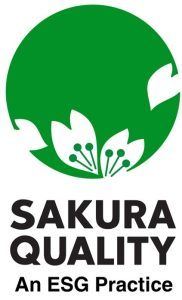
Seychelles Sustainable Tourism Label (SSTL) Criteria
The Seychelles Sustainable Tourism Label which is a certification programme aims to enhance the quality and sustainability of visitors’ experiences by mitigating tourism’s negative economic, environmental and social impacts on the destination and contributing to the preservation of natural and cultural treasures for the future generations of Seychelles.
SOCOTEC’s Sustainability Management System for Hotels
The Sustainability Management System for the Hotel Industry provided by SOCOTEC Certification International helps hotel businesses achieve best practices in sustainable tourism. SOCOTEC Certification International is a subsidiary of the SOCOTEC group, that provides management system assessments and accredited ISO certification services to organizations around the world since 1995.
Sustainable Berlin Standard

Sustainable Travel Ireland – GSTC Industry Criteria
Sustainable Travel Ireland, formerly Ecotourism Ireland, is Ireland’s leading and longest-running body for the promotion of sustainable and responsible tourism, training and certifying businesses for over 10 years. Founded in 2009, Ecotourism Ireland set out to develop ecotourism in Ireland, and to highlight the best of what the country had to offer whilst ensuring its heritage and environment were preserved for this and future generations. Today, Sustainable Travel Ireland has the same mission but broader, aiming to drive the development of a new, sustainable model for ALL tourism in Ireland, and has formally adopted the GSTC Industry Criteria to be used in Ireland by accommodations and tour operators.
TOFTigers Initiative’s Pug Standard
The India & South Asian based nature tourism focused organisation, TOFTigers has its PUG Eco- rating certification recognised as a part of its attempts to help use the booming market in nature tourism across India and South Asia as a tool for conservation of forest and wildlife, including tigers. Alongside over 220 of the world’s best known tour operators, agents and lodge members, its promotes a purchasing supply chain campaign to promote better tourism, better training and better monitoring and advises Governments, States, parks, providers and visitors on best practice in nature tourism, to ensure a fair and equitable future for nature, visitors and bordering park communities.
TourCert Industry Criteria
All criteria catalogues of TourCert are based on the international quality and environmental management standards according to ISO and EMAS as well as the ISO guidelines for corporate responsibility (ISO 26000) and are also oriented to the international regulations of the Global Sustainable Tourism Council (GSTC).
Travelife Standard for Hotels & Accommodations
The Travelife for Hotels & Accommodations international certification scheme works with its members to increase their sustainability. The Travelife criteria cover environmental, social and economic business impacts, and a hotel’s success in meeting these criteria is assessed by independent auditors. Hotels meeting the Travelife standard can promote their business with the Travelife ‘Gold’ and ‘Award of Excellence’ certification marks, helping consumers easily identify more sustainable accommodation.
Türkiye Sustainable Tourism lndustry Criteria (TR-I)
Türkiye Sustainable Tourism lndustry Criteria (TR-I) is the main component used in Türkiye’s Sustainable Tourism Program and have been built to ensure sustainable growth of the Turkish tourism industry. TR-I includes both criteria that comply with the social and cultural structure of Türkiye and globally recognized sustainable tourism criteria. TR-I standard was introduced under the guidance of the Republic of Türkiye Ministry of Culture and Tourism and the Türkiye Tourism Promotion and Development Agency (TGA). TR-I have adopted all GSTC Industry Criteria and will be revised according to updating period of the GSTC Criteria.
GSTC Criteria
The GSTC Criteria serve as the basis for determining whether other standards are “GSTC Recognized”. That means that by definition the GSTC Criteria can be considered “Recognized.” It also means that any Certification Body that uses the GSTC Criteria for their certification program is using a GSTC Recognized standard. Please note that GSTC Accredited means that a Certification Body uses the GSTC Criteria or another GSTC-Recognized set of standards to certify, AND has undergone a rigorous verification process by the GSTC to verify that their certification program is neutral and competent.
GSTC-Recognized Systems
Booking.com’s System used for the Travel Sustainable Program

Centara EarthCare

Greenview Portal
The Greenview Portal is an industry-specific system developed by Singapore-based consultancy Greenview that allows hotel companies to track, measure and improve in areas of environmental sustainability and social responsibility at property or multi-site level. The online platform allows hotel owners, operators, and affiliations to track, benchmark, report and improve on various aspects of environmental and social performance. Greenview Portal is a GSTC -Recognized System.
Hilton LightStay
LightStay is Hilton’s proprietary social and environmental performance measurement platform underpinning Travel with Purpose, Hilton’s global corporate responsibility strategy. It was developed to calculate and analyze the environmental and societal impact of every Hilton branded hotel in their operations and communities. The platform tracks energy, water, waste, and carbon data, as well as social impact like local sourcing, youth training or volunteering hours, and operational best practices and sustainability recognitions. Through the use of LightStay, every property in Hilton’s portfolio is certified to ISO 9001 (Quality Management), ISO 14001 (Environmental Management) and ISO 50001 (Energy Management).
The Ascott Limited
The Ascott Limited (Ascott) has gained GSTC-Recognized Status for its system adopting the GSTC Industry Criteria. The stated scope and applicability of the GSTC Industry Criteria includes corporate offices and all managed branded properties globally.
Ascott, a lodging business unit wholly owned by CapitaLand Investment, is a hospitality company with more than 920 properties globally, spanning over 220 cities across more than 40 countries. Ascott CARES, its sustainability programme, which is a part of the System, is centered around five pillars representing the acronym CARES – Community, Alliance, Respect, Environment and Supply chain.




